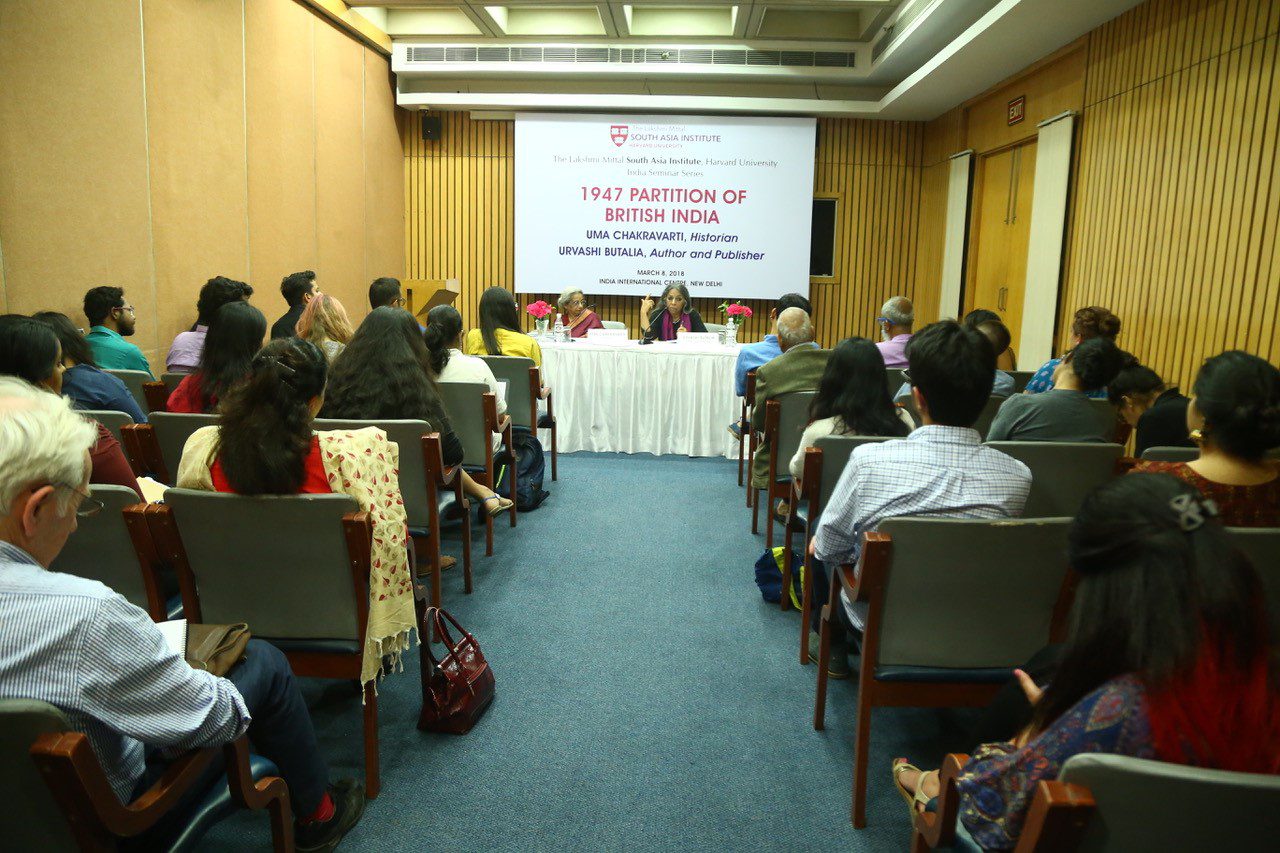SAI’s new India Seminar Series, at our Delhi headquarters, is gathering steam. We have plenty of exciting events planned for Spring 2018 and will continue for the rest of the year and beyond. You can find all the details on our events page and by subscribing to our weekly newsletter.
On March 8, 2018, feminist historian Uma Chakravarti and feminist publisher Urvashi Butalia gave a seminar on Partition.
Uma Chakravarti is a feminist historian who taught at Miranda House, University College for Women, Delhi from 1966 to 1998. She is the Delhi project director for the SAI Partition Project, ”The Demographic and Humanitarian Consequences of the Partition.” Chakravarti writes on Buddhism, early Indian history, caste and feminism, and contemporary issues.
Urvashi Butalia is the author of “The Other Side of Silence: Voices from the Partition of India,” which centers oral histories from subaltern communities and women who experienced the Partition. Butalia co-founded Kali for Women, India’s first exclusively feminist publishing house. Following the closure of Kali for Women, she founded Zubaan Books.
Chakravarti shared a personal anecdote of her first conscious experience of violence back in 1946. The idea of this story was to challenge the popular belief that the violence of Partition only began in 1947. The clash between personal memory and popular historical narratives set the talk’s overall tone.
Butalia followed with a story that sparked her interest in studying the 1947 Partition. She recalled asking a Punjabi-speaking beggar woman, “Where are you from?” and received a question in reply, “Hune ya pehlan? (now or before?)” This encounter, led to the realization of the magnitude of Partition’s impact on the lives of people, going as far as to say it created a “division of time.”
While discussing oral histories as a data collection tool for research, Butalia highlighted the challenges of trying to examine the Partition. Her goal was to locate a people’s history of Partition by telling untold stories such as those of women, children, and Dalits.
Her experience diving further into women’s experience of Partition included stories of abductions, rapes, and honor killings. However, there were no direct stories from the women who had directly experienced these horrors. Many of these women had married their abductors, and even had children with them. Additionally, the families of many of these women were not aware of the sexual violence they had experienced. Because of this, the vocabulary to talk about those incidences of sexual violence was missing. Butalia decided that as an oral historian, she needed to respect the choice of women to keep silent about their experiences.
Another layer of history that Butalia uncovered were the experiences of children during Partition. Butalia learned that although abortion was illegal in India, abducted pregnant women were forced to have their fetuses aborted in government hospitals. Many organizations adopted children, particularly girls, as household help. However, these children were often returned if they were too “lively.”
Lastly, Butalia discussed the drawbacks of having a time lapse between the event and the study of Partition, in large part because many of the survivors have died. For survivors, the Partition studies have the potential to give them a sense of justice and redemption for the terrible experiences they lived through.
After the discussion, the house opened to attendees for questions. Various audience members raised concerns regarding the psychological cost the researcher has to bear while handling sensitive and traumatic narratives, the importance of oral histories to find multiple narratives, and the role of academia in this research.

